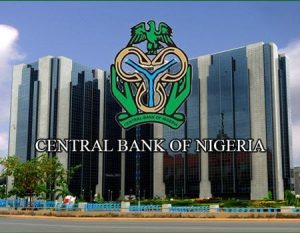
More than three decades after General Ibrahim Babangida enacted the infamous Motor Vehicles (Prohibition of Tinted Glass) Decree No. 6 of 1991, Nigerians are being forced to relive its burden. Ironically, under the civilian leadership of President Bola Ahmed Tinubu who once fought Babangida’s excesses, Inspector-General of Police (IGP) Kayode Egbetokun has resurrected the decree, mandating motorists to obtain tinted-glass permits at the cost of ₦14,000 per vehicle starting October 2.
The move has triggered a nationwide uproar. Critics argue that this policy, imposed in the middle of hyperinflation and record fuel prices, amounts to nothing more than a revenue drive at the expense of struggling citizens. With a minimum wage of ₦70,000, the ₦14,000 permit swallows a fifth of monthly earnings. One social media user captured public anger bluntly: “Making payment yearly is criminal.”
Economic Burden on Motorists
Nigerian motorists already grapple with a dizzying array of vehicle-related fees: proof of ownership certificates (now renewable yearly), inflated third-party insurance, ever-rising licence charges, and numerous state and local government levies. Adding yet another cost for windows that are often factory-standard “follow-come” tints only deepens public resentment.
The indiscriminate nature of the regulation also raises questions. Almost every car on Nigeria’s roads comes with shaded or coloured glass from the factory, designed primarily for UV protection and heat reduction. Why penalise citizens for features that are globally standard in car manufacturing?
Legal and Constitutional Concerns
The Nigerian Bar Association (NBA) has already challenged the policy in court, although it failed to secure an injunction halting implementation. At the heart of the matter is whether the police are misapplying the law. The 1991 decree prohibits vehicle owners from causing glasses to be tinted, shaded, or darkened language that targets aftermarket modifications, not factory-produced vehicles.
By extending the law to cover all shaded or coloured glass, the police risk overreach, usurping judicial powers and transforming themselves into complainant, prosecutor, and judge. This is contrary to the doctrine of separation of powers enshrined in the Constitution.
A Misguided Security Argument
The police have defended the policy on grounds of national security. Yet, this justification collapses under scrutiny. Criminals conceal weapons in car boots, yet motorists are not asked to obtain “boot permits.” Officers simply conduct searches when necessary. Why can’t tinted windows be treated the same way with drivers asked to wind down their windows at checkpoints?
Furthermore, the fines for violating the law are set at ₦2,000, far below the ₦14,000 permit fee. This discordance exposes the initiative for what it is: a revenue-generating scheme.
Conclusion: Lessons Unlearnt
The timing and tone of this policy suggest a troubling disregard for citizens’ economic plight and democratic freedoms. Coming less than five years after the #EndSARS protests, the decision risks reopening wounds about police overreach and impunity.
Nigeria does not manufacture vehicles or automotive glass; it imports them. Forcing citizens to pay for permits on features embedded at the point of manufacture is not only unjust but economically senseless.
The police should focus on their constitutional duty to protect lives and property, not exploit decrees of a bygone military era for profit. If unchecked, this policy may once again pit the Force against the very citizens it is sworn to serve.

